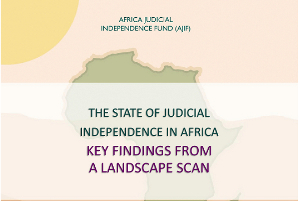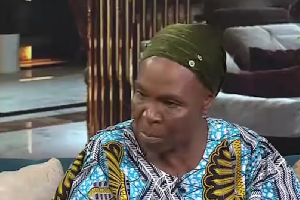Judicial independence across Africa is under severe strain as many countries grapple with challenges that pose existential threats to the integrity of their judicial systems, a new report by the Africa Judicial Independence Fund (AJIF) reveals.
The landscape scan, titled "Overview Analysis of the State of Judicial Independence in Africa," provides an in-depth assessment of African judicial independence, focusing on 11 priority countries: Angola, the Democratic Republic of the Congo (DRC), Ethiopia, Kenya, Mali, Nigeria, Senegal, South Africa, Uganda, Zimbabwe, and Ghana.
The report highlights numerous challenges that threaten the foundation of justice in African nations, including government influence over the judiciary through executive appointments and judicial promotions, as well as disregard for court decisions.
The report also cites pervasive corruption eroding public trust, leading to selective prosecutions, unfair trials, and violations of due process.
Other challenges identified are non-democratic power transitions that disrupt constitutional order, threats and attacks on judges and legal professionals, and the influence of ethnicity, regionalism, and gender biases on judicial decision-making and appointments.
Socioeconomic challenges such as inadequate resources, poor working conditions, and low salaries for judicial officers are also identified as factors that increase susceptibility to corruption and external influences.
Security risks for judges, particularly in conflict-affected regions, further undermine judicial effectiveness and impartiality.
The findings were released during the July launch of the Africa Judicial Independence Fund, an initiative by Afrobarometer designed to support activities that strengthen judicial independence, foster transparent legal systems, and enhance the rule of law across the African continent.
By providing funding, resources, and advocacy, the AJIF aims to empower judicial systems to resist external pressures and operate with integrity and impartiality.
The report proposes a range of actionable recommendations, including empowering the judiciary to operate free from executive influence by reforming appointment and promotion processes.
Other recommendations include the implementation of stringent anti-corruption measures within the judiciary to restore public trust and fairness, as well as the provision of better protection for judges and legal professionals, particularly in politically sensitive cases.
The report also calls for measures to address biases related to ethnicity, regionalism, and gender to ensure fair and impartial judicial processes.
Speaking at the launch, Prof. Willy Mutunga, former chief justice of Kenya and chair of AJIF’s advisory board, stressed the importance of judicial independence in upholding democratic governance and the rule of law in Africa.
“Independence of the judiciary is a fundamental pillar of democracy. There is a need to create an environment in which judicial functions can be performed with independence, as one of the three branches of government, without interference," he said.
Saeed Salahudeen, Afrobarometer senior finance manager and manager of the AJIF, called for collaboration with civil society and other actors to ensure that the judiciary in Africa can operate without undue influence, intimidation, or interference.
“Through AJIF, we aim to provide resources and related support to institutions and advocates working to strengthen judiciaries around the continent to uphold the principles of fairness and impartiality in the delivery of justice,” he said.
“Your active participation and commitment are not just crucial, but they are the driving force behind this transformative journey. You are the architects of this change,” he added.
About the Africa Judicial Independence Fund:
The Africa Judicial Independence Fund is an initiative by Afrobarometer dedicated to supporting initiatives to strengthen judicial independence in Africa, ensuring that judicial officers in target countries can execute their mandates in a fair, transparent, and independent manner.
General News of Tuesday, 30 July 2024
Source: Afrobarometer

















